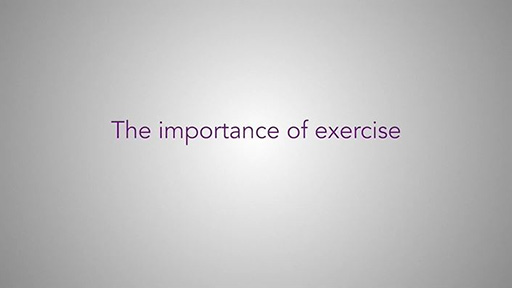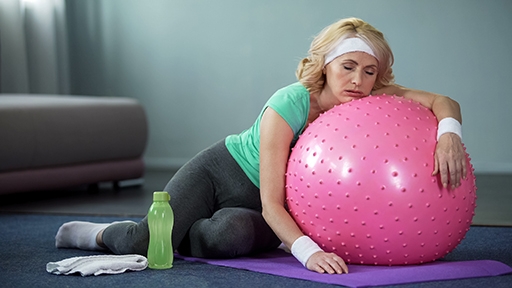1 Exercise – really?
For anybody in menopause, exercise can seem like a distant and possibly ridiculous dream. What? I can’t sleep, I’m exhausted, I’ve got too much to do as it is, my body is out of control, I don’t recognise myself in the mirror, my clothes feel horrible, I’m so hot all the time and everything just hurts! What’s more, if I try to run, I pee! And you want me to exercise?
However, being physically active and moving our bodies is absolutely essential to our long-term health and to our quality of life. In addition, it can have huge benefits in menopause.
Exercise and health in menopause
Exercise has a particularly important role in menopause. Whether you are used to being active in your job, whether you take part in sport, or whether you haven’t exercised for some time (perhaps many years), the menopause years are a time to pay special attention to incorporating exercise into your life. But many women become less active as they get older, even from as young as the teenage years, so that by the time they hit their mid-40s, they may not have exercised in any formal way for 30 years.
Exercise plays a big part in protecting menopausal bodies from the effects of declining oestrogen levels. As you have seen, oestrogen is not only involved in menstruation and reproduction. It also has significant benefits in terms of protecting our bones and cardiovascular health. Once oestrogen levels drop in menopause, this protective effect is lost, and we are then at significantly increased risk of both osteoporosis (loss of bone density) and cardiovascular disease. Activity 1 introduces the role of exercise and what exercise should be done.
Activity 1 The importance of exercise
Watch this short film, where menopause specialist Dr Louise Newson talks about the importance of exercise.

Transcript: Video 1 The importance of exercise
What are the main points that resonate with you from Dr Newson’s ideas?
Comment
There are some key ideas mentioned in Video 1:
- Exercise has to be something that suits you and that you can fit in to your life.
- Everyone is different and will like different kinds of exercise. Some people go to gym classes 3–4 times a week, but if you prefer doing your own yoga practice, that’s absolutely fine too.
- Exercise doesn’t have to be what you might think. It can mean simply walking to work rather than driving or using public transport or walking up the stairs rather than using the lift or escalator.
- Exercise is good for lots of things: muscular strength, fitness, and the health of our heart, bones and brain. Also, it is beneficial for our mental health.
- Sometimes it can be hard to find the motivation to exercise, but if we make it part of our routine, it gets easier.

